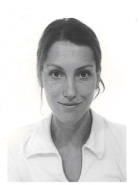Welcome to our course on evaluation and impact assessment in Citizen Science!
We are Barbara Kieslinger  and Teresa Schäfer
and Teresa Schäfer 
We have started working in Citizen Science as a topic of research since 2012 and have since then gathered experience in theoretical and practical aspects of this participatory research approach. For example, we have been planning and implementing evaluation activities in citizen science projects. And we developed an evaluation framework that can be adapted to any Citizen Science project.
But, let’s be honest: Who is really keen on doing evaluation? Aren’t we much more excited about the research and the participatory activities and isn’t evaluation and impact assessment an additional burden? Sometimes it seems that nobody is keen on doing it, but then it’s great to have solid evidence for the achieved impact.
So, evaluation and impact assessment form an important part of any Citizen Science project and should be well integrated in the project structures. Expectations on what evaluation should cover come from many sides, including project internal stakeholders, institutions and funders. However, there are so many ways to approach evaluation and impact assessment and it is not always easy to select and implement an appropriate strategy.
This course is a first introduction to evaluation and impact assessment in Citizen Science projects. It should give you an overview of current approaches, challenges and concrete methods and examples on how these are applied.
We start the course with an general introduction to evaluation and will then go into further details about evaluation in Citizen Science, showing concrete examples, methods and tools in context. We will also explore current challenges that Citizen Science projects are facing when dealing with evaluation and impact assessment.
At the end of this course we will provide a short reflection activity and offer templates that might be useful for your work. This will allow you to record your thoughts or check your understanding. We do not want to test your knowledge. So you will not find any quizzes here, but we want to give you some time and space to reflect on what we have been presenting by asking you some trigger questions for your own reflection. If you mark all sections as completed, we know that you are ready to get the badge for this course.
While this module may give you some first ideas and a general overview, you might want to dive deeper into the topic as you might get excited about evaluation ;-) So if you would like to explore the subject matter further, we offer you a list of sources and further reading at the end of the course.
You will need approximately 2 hours to do the course, but you can also pick the content that is most relevant and interesting for you.
We hope you enjoy it!